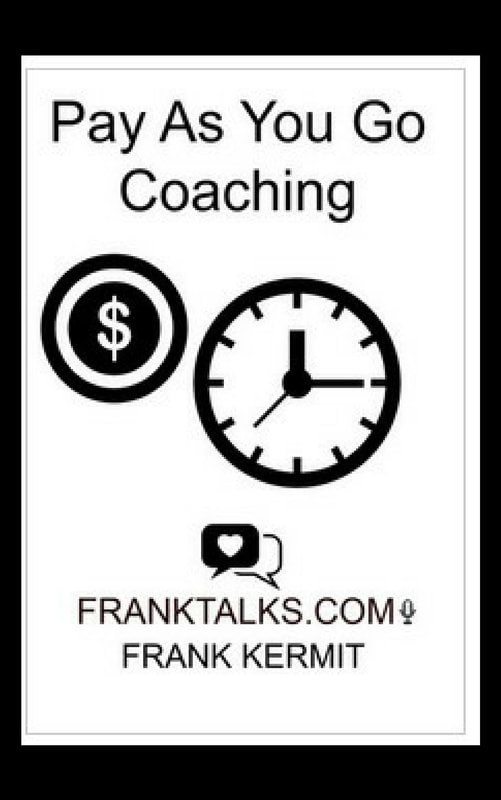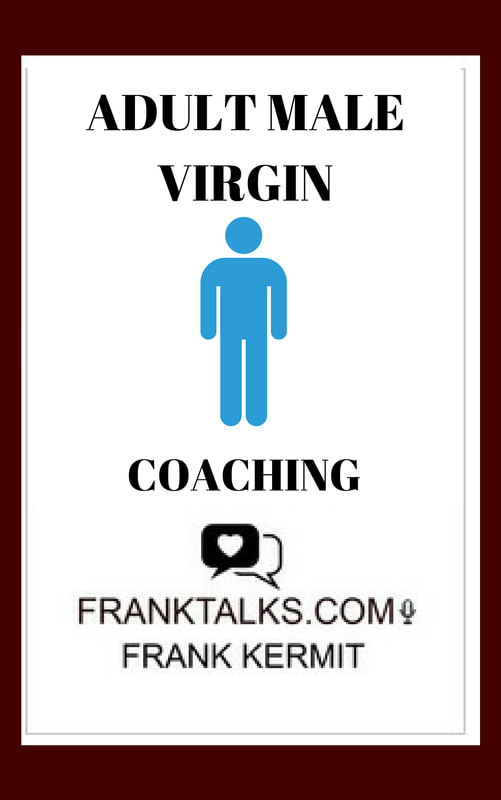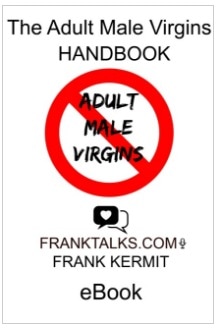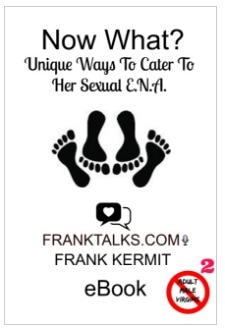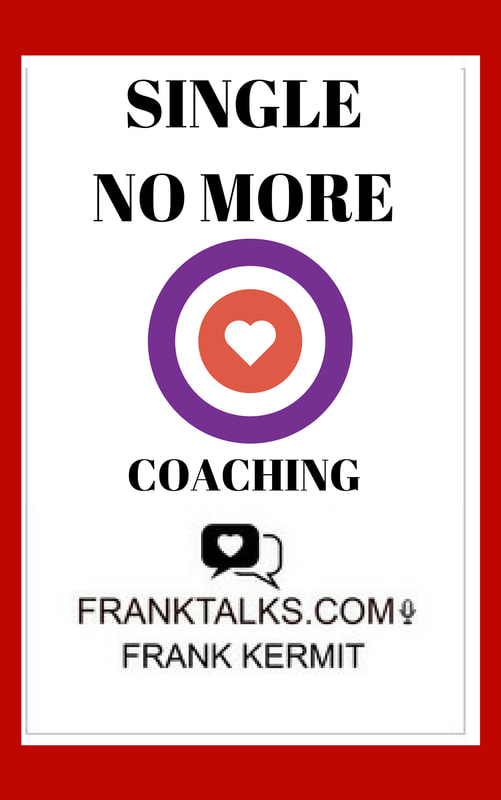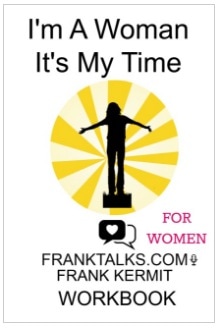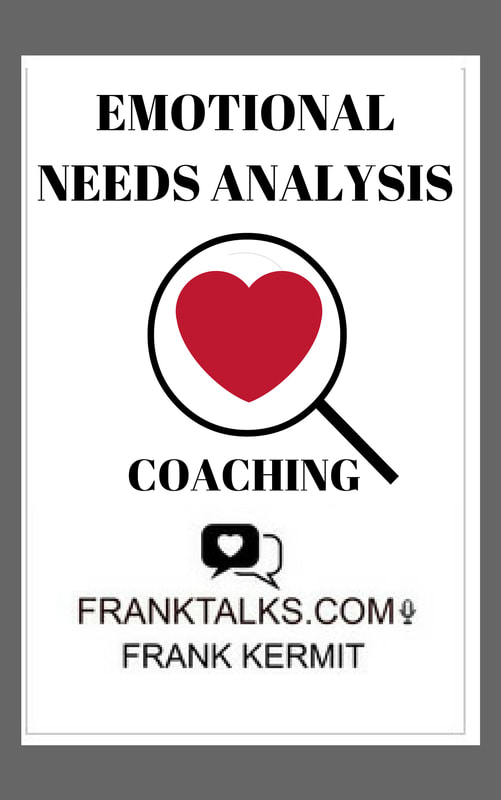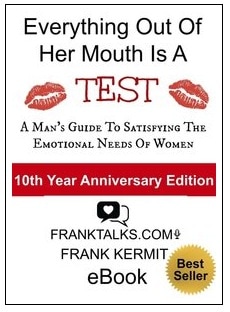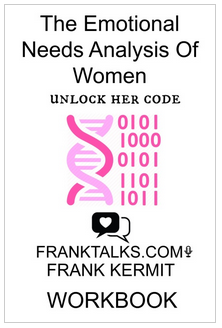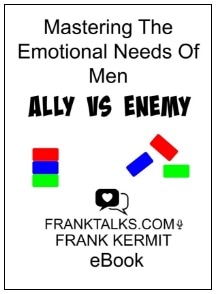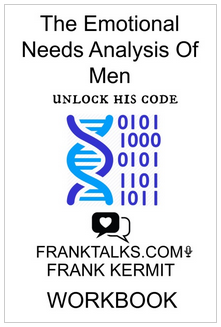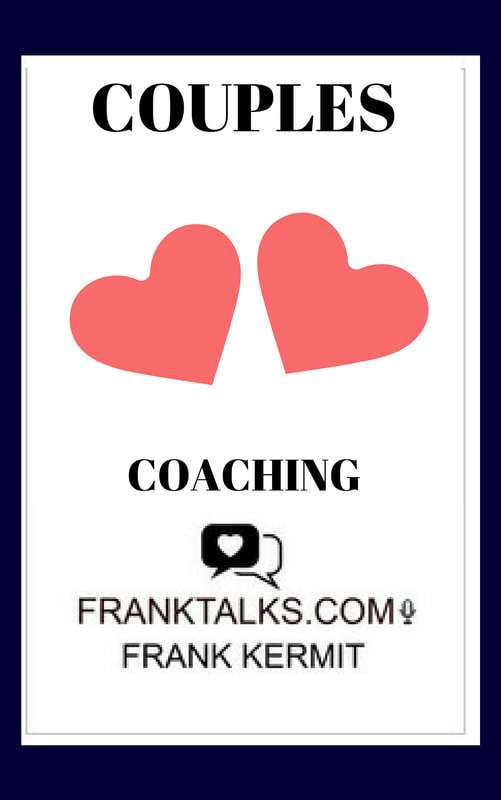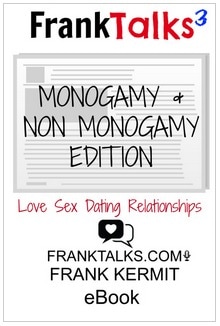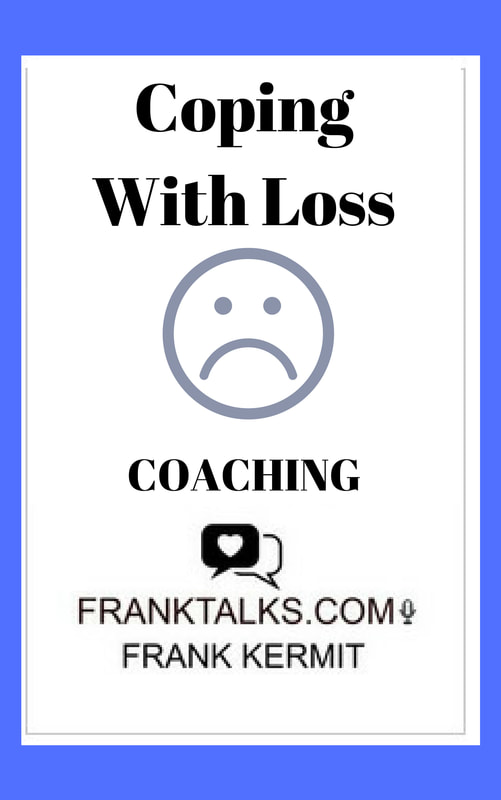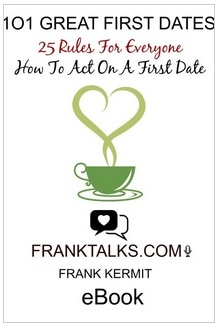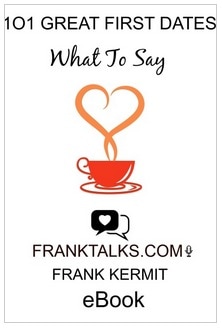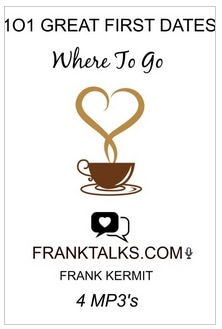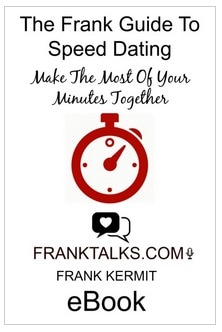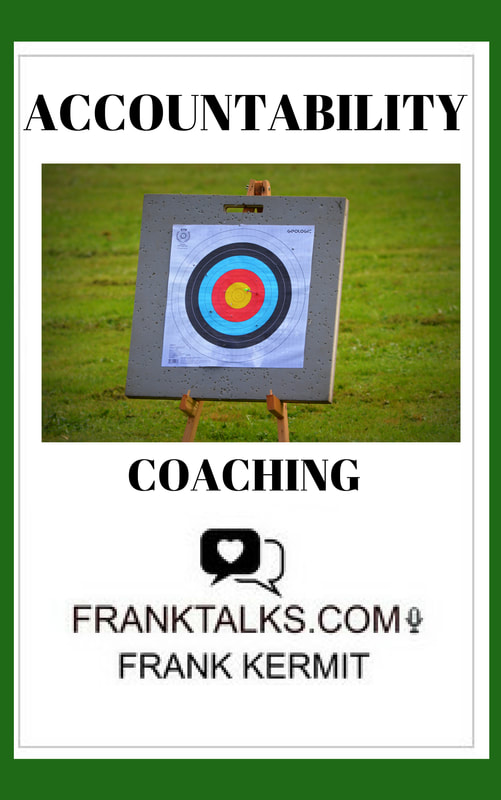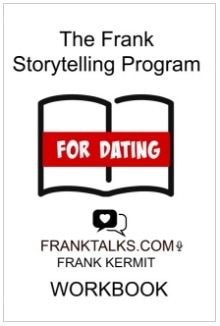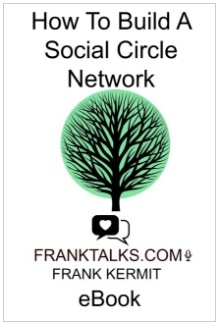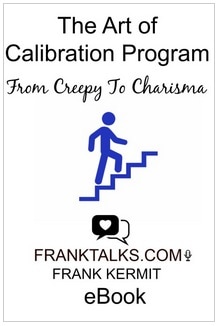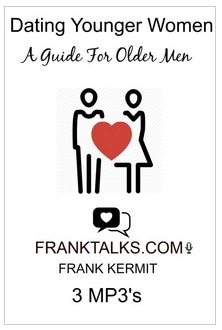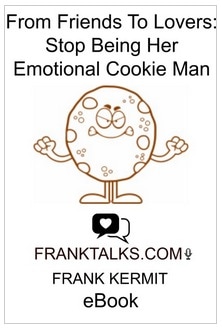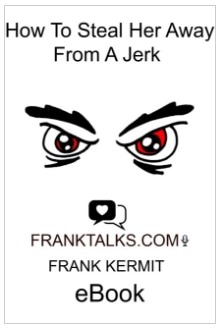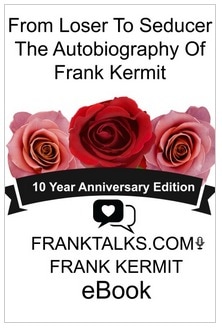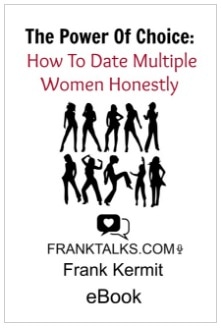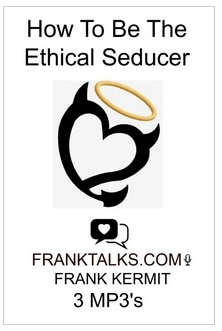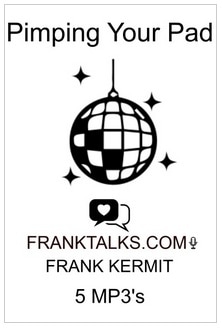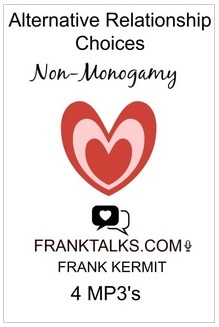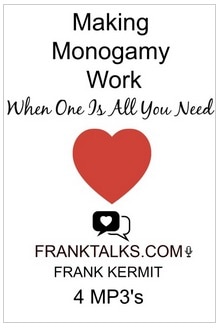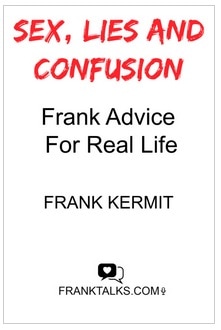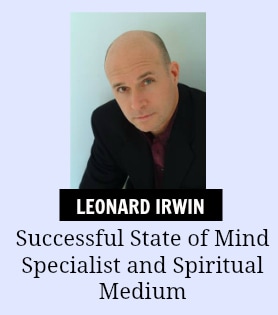|
Having a wingman (or woman) can be helpful while scouting for dates; other times, you’re better off flying solo. We take a closer look at why your best friend can be your worst enemy when you’re single. By Christine Champ for Match.com Happen Magazine 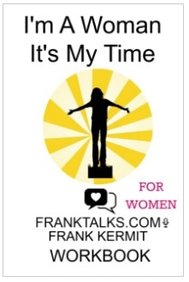 It's Your TIME Now It's Your TIME Now When Anna, a single gal from Seattle, WA set out to find a boyfriend, her friend Kim offered to act as her “wing woman” during her search for an entire year. At first, it sounded like a fabulous idea — but just one month later, Anna “fired” Kim. You see, whenever the two met a single man somewhere, Kim turned into a flirting machine: tossing her hair, giving seductive sideways glances…she stole the spotlight every time away from Anna, even going so far as to physically block her friend out of some conversations by standing in front of her! Whenever Anna asked Kim if she was interested in these men herself, she’d deny it. Instead of a boyfriend, all Anna acquired during her short-term experiment was self-doubt, frustration and confusion. As Anna describes it, all her experience managed to do “was clip my own wings.” Mark Fitzgerald, 36, from Sacramento, CA recalls the time he asked his longtime friend to size up the cute retail clerk he’d been mustering up the courage to ask out. Instead of returning from the recon mission with his stamp of approval, Mark’s friend came back with the retail clerk’s phone number — and plans to date her himself. So — (frenemies aside, obviously) — why would a friend, sister, brother or other close comrade get in your way when you’re looking for love? We’ve come up with a few reasons that take malice out of the equation entirely. Five reasons why good friends can sometimes make bad “wingers”... 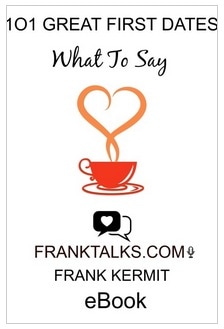 Conversations For Dating Conversations For Dating 1. They feel obligated to make chivalrous chit-chat on your behalf and end up shifting the target’s attention in the wrong direction. Fitzgerald has been on both sides of the wingman block himself; once, when a friend’s flirting turned into floundering, he felt responsible for keeping the conversation going so the woman his friend was interested in wouldn’t leave. Fitzgerald now realizes that commandeering the conversation might actually intimidate a tongue-tied buddy, so he makes an effort to tread carefully when helping cultivate initial small talk before excusing himself from the conversation entirely. 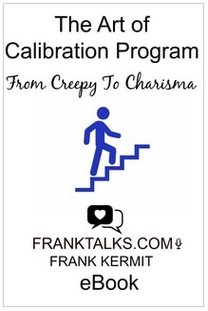 Stop Insecurity! Learn to have CHARISMA Stop Insecurity! Learn to have CHARISMA 2. Their own insecurity drives them to try and “win” every perceived competition… even if they lose your friendship in the process. For some people — single or not — the subconscious urge to compete with their peers trumps everything else. It’s about proving they can win the guy or girl’s attention, even if they’re not looking for a relationship themselves. Dr. Diana Kirschner, Ph.D., author of Love in 90 Days, observes that often, insecurity is what’s really behind these competitors’ outward show of confidence and flirting — along with the drive to demonstrate they’re desirable, regardless of the cost to their friendships. Sometimes, adds Dr. Kirschner, “scarcity consciousness” can also make people worry “there’s not enough to go around” when it comes to finding potential dates.  Get Yourself Together Get Yourself Together 3. They’re addicted to being in the social spotlight. Ron Geraci, author of The Bachelor Chronicles, notes that some people simply “cannot stand the fact that someone else is getting attention.” But, adds Geraci, don’t condemn these attention hogs too harshly; basking in the romantic limelight gives a “shot of adrenaline to their ego” that boosts their own low self-confidence. 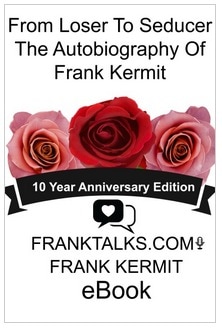 The Journey The Journey 4. Some people have trouble choosing their own romantic partners, so they aren’t helpful in scoping prospects for you, either. A recent University of Indiana study suggests that people note the preferences of others — regardless of whether they’re friends or strangers — to make their own search for a mate more efficient. This stems from the idea that “who others like might be a good choice for ourselves,” according to Skyler Place, a researcher in UI’s Department of Psychological and Brain Studies who coauthored the study, along with Peter M. Todd, a professor in the university’s Cognitive Science Program. Frank Kermit, relationship coach and author of From Loser to Seducer, cites another reason: sometimes people don’t trust their own judgment when it comes to finding someone else attractive.  Learn The Ethics of Seduction Learn The Ethics of Seduction 5. You’re hunting for a date, but your friend’s a natural-born poacher. University of Texas psychology professor David Buss coined the term “mate poaching” to refer to people’s tendencies to try to steal romantic partners away from others. Geraci believes the principle applies equally to singles on the prowl, saying that “it’s a convenient way to find a mate because someone else is doing a lot of the work.” Singles should use caution when choosing wingmen or wing women; watch out for those friends who exhibit potential poaching tendencies and avoid going out with them when you’re looking for dates. After all, when you’ve engaged a prospect that piques your pals’ interest, “it’s like bringing your kill into a pack of hyenas,” warns Geraci. 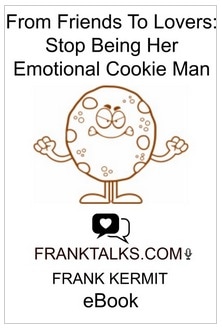 Stop Letting Her Use You Stop Letting Her Use You Mending a “broken wing” relationship Before you try to mend your relationship with a failed wingman or wing woman, make sure you’re not misreading any signals — like the silent cues that your tall, dark and handsome (or blonde and beautiful) target sends that indicate your attraction isn’t mutual after all. According to matchmaker and etiquette coach Joy Nordenstrom, the three biggest clues that your flirting is indeed being reciprocated include: direct eye contact, mirroring (i.e., your crush copies your body movements) and leaning in to get physically closer to you. If it’s still obvious your friend’s crossed a boundary, here’s one solution: exclude him or her from social situations where you might connect with someone romantically. Advises Tina B. Tessina, Ph.D., author of The Unofficial Guide to Dating Again: “that’s how you teach people that they’re socially unacceptable,” though she considers an intervention to be worthwhile if you believe your friend’s bad behavior is unintentional. If you do decide to stage an impromptu bathroom meeting to interrupt the offender’s advances, Kirschner recommends keeping it positive — like asking your cousin to tell the ladies about your smooth salsa moves, then adding that you’ll be ready to take the lead on the dance floor right after the next song begins.  Setting Your Boundaries Setting Your Boundaries Establishing the rules of engagement If you really want your wingman or wing woman to “rise to the occasion,” says Nordenstrom, establish some rules of engagement first so that it’s clear “you’re playing on the same team.” Start by clarifying your goals for the outing, and have your friend do the same. Agree to put each other in the best light possible throughout the evening — from subtly pointing out the broccoli in your friend’s teeth to bragging about his or her tennis skills. Think of flattering stories to share about your friend or make a mental note of his or her most attractive features before you go out together. Mutually agree on a code word (like “yesterday”) to indicate you’re interested in someone so both of you don’t end up inadvertently flirting with the same person. If you end up eyeing the same hottie without realizing it, take a beat by yourselves to discuss and compare your desire levels on a scale of 1 to 10. A good wingman or wing woman knows when “to step back,” but as Tessina also cautions, “every person you meet isn’t Mr. [or Ms.] right” — so choose your showdowns wisely! 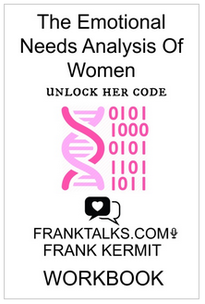 Understanding on an Emotional Level Understanding on an Emotional Level Flying solo: is it an option? The insights we’ve shared here should help you choose a wingman or wing woman that brings out the absolute best in you — because, according to Nordenstrom, when your romantic radar reacts, you often “have a very short window to make a strong impression.” Or, try flying solo — Kirschner believes you may unleash your “inner charisma” when you’re forced to conquer your shyness and/or social anxiety. If you attempt a solo recon mission for scouting dating prospects and spend all night cowering next to the bathroom instead, finding a friendly co-pilot you can rely on is definitely the better way to fly! ***Disclaimer: DEAR READERS: This was an article written by Christine Champ for Match.com that Frank Kermit was quoted in. All rights, titles and interests in the article remain with the author and Match.com Author Bio: Christine Champ is a freelance writer based in the Northwest. Her writing has appeared on MSN.com, MSNBC.com, Film.com and in The Seattle Times.
0 Comments
The Importance of Keeping Your Word by Frank Kermit It can happen sometimes where you make a promise that you did not realize you would not be able to keep. We are human beings, and when that happens, it can be embarrassing. The cost of this kind of immature action is: The Loss Of Your Credibility
Quality people do not have time in their lives for people that lack credibility. If you want to be a Good Person then start by being Good at keeping your word. If you don't want someone to label you, be sure you aren't acting in a way that makes then need to in the first place. The Friends-With-Benefits Quiz Question # 1 by Frank Kermit Let me start by saying that this information about how to manage a Friends-With-Benefits is an excerpt of my coaching workbooks for women and for men.
Sometimes people might want to answer "A. As Often as Possible" because they figure that it is like getting "free" sex and they should take as much as they can. That does seem reasonable. Sometimes people might want to answer "B. 2-3 Times a Week" because they figure, it is just like dating someone anyways and they want to enjoy themselves with their lover and it gives them time to see their friends-with-benefits lover AND still have time to go out, do their errands, and have time to themselves. That does seem reasonable too. Sometimes people might want to answer "C. Every Weekend" because they figure the person is just a friends-with-benefits and they have busy lives, but that they should be willing to commit to meeting every weekend so that neither one has to date anyone else so they can have guaranteed sex, and a guaranteed plan for the weekend, and no one ends up lonely. That does seem reasonable as well. Sometime people might want to answer "D. Once a Week, Or Less" because they figure that a friends-with-benefits is not a serious commitment sex partner, and that they want to enjoy the benefits, but still keep a proper emotional distance. These are ALL REASONABLE INTERPRETATIONS. But there is only ONE RIGHT ANSWER
The Answer is D. Once a Week, Or Less A proper FWB relationship means you only see each other once a week. Twice a week on occasion if you plan a special getaway. One of the biggest mistakes that partners make in FWB is that they try to see each other as often as they can in a short time period. All this will do is confuse the issue. Seeing each other more than once a week is acting like more serious relationship than it is, and can nurture romantic feelings to develop. If you act like you are more than just a FWB, you can expect one or both partners to start feeling, wanting or expecting more from each other P.S. Do you Agree With This Article? Disagree? Have something to Add? Write your thoughts in the comments below and share this article to see how many of your friends think like you. What To Do When You Like Someone By Frank Kermit It happened. Despite your efforts to stay alone and uncomplicated, it happened. When you were not looking for it, you actually started to like someone. You actually found someone that you like. Now what? When you like someone, the big question is always what do you do?
Calibration is called for when you like someone and want to see about taking your interest a step further to see if the two of you can connect. As I discuss in my THE ART OF CALIBRATION PROGRAM: FROM CREEPY TO CHARISMA EBOOK, There are a number of factors to consider such as:
There are TWO QUESTIONS to ask: 1. First question to ask is if there are any consequences of dating, or just asking out, this person 2. The second question to ask is if you are willing to accept those potential consequences. If you can get a yes to that second question, then here are some tips. When To Go DIRECT and When to be INDIRECT Telling someone directly and right away works if the person you like already likes you back or is open-minded enough to give you a chance. If you do not know if that person likes you, you may want to take a more subtle approach. The rule to follow is the longer you have known each other, the more indirect you should be. If you just met the person, telling that person you like him or her enough to want to get to know them better is non-threatening and can actually be a welcome invitation. There is no friendship to risk.
In those cases, it is just best to isolate that friend to a one-on-one activity and see about making a romantic move. Better to try to hold a hand, or lean in for a good night kiss to sexualize the context of the dynamic. If you get rejected, well at least you know and you tried. Should You Ask Other Friends To Help You? Involving your friends from your social circles has its pros and cons. Usually, it is a bad idea, unless you have a solid friendship with someone that is socially clued in. In the case of having a good friend that is a mutual friend of the target of your heart’s affection, you can enlist that person’s help by asking them to help you set a time for you all to meet and that friend can politely excuse him or her self from the activity. A friend may also be able to give you information about whether or not that person is emotionally available. Again, make sure you are dealing with a solid friend and not someone that will inform you incorrectly. A friend that can actually work like a matchmaker may be in your best interest if that friend knows where the two of you are compatible. With all that said, being very direct does have advantages. You need not involve anyone else into your private love life and good or bad, you get an answer much quicker about where you stand. Either way, the best thing you can do when you find you like someone is: to take some kind of action listed above. People tend to regret the things that they did not do, more so than the things that they did do. Frank Kermit P.S. Do you Agree With This Article? Disagree? Have something to Add? Write your thoughts in the comments below and share this article to see how many of your friends think like you. The Mother-Lover Theory:
Understanding the Emotional Needs of Women By Frank Kermit A woman can only play one of two roles in a man's life. She is either his mother or his lover. She cannot be both. When a man addresses a woman's emotional needs, her mothering instinct is halted, and thus by default, she feels more of a pull to potentially being his lover. When a man violates a woman's emotional needs, her mothering instincts kick in, and she feels more mothering feelings towards him, and feels pushed away from potentially being his lover. For example, one of the emotional needs of a woman is the protection of her most important asset: her reputation. When a woman is around a man that hurts the reputation of other women when he is around her, she knows that she cannot fully let her guard down. She has to be the adult in the dynamic because the man is not mature enough to appreciate how un-calibrated (and possibly creepy) his behavior is. Since she feels the need to be the adult in the situation in order to make sure that she does not inadvertently say anything around him that he could repeat to others (in the same way he is speaking poorly about others in front of her), she is enacting a behavior that is akin to how a mother must be careful of her wording, least an infant repeats her words in an inappropriate manner. When a man actively presents himself as a gentleman that does not kiss and tell, and that does not speak disparagingly of other women in front of her, she can let her guard down enough to feel comfortable with him to the point of being intimate with him, knowing her reputation will not be in any way tarnished by him. She does not have to be akin to a mother afraid of what an infant will repeat, because she recognizes that she is dealing with a man, not a little boy, that is mature enough for her to enter into mature relations with. Male friends of women, specially those men that are in love with their women friends, but their women friends refuse to date them have actually violated her emotional needs. This is WHY male friends have been banished into the sexless friend-zone. If there was one common element that all "just friends" males have exhibited, it is that at some point, and usually in an ongoing fashion, these men make their female friends feel like they have to mother these guys. These nice guys, can be good friends (very giving friends at that), but they do not engender feelings that would make her want to be his lover, because he makes her feel like his mother. He likely tells her his problems, seeking the validation of her approval, and wants her to make the first move. All these behaviors force her into a mothering role in his life and that kills any potential of sexual attraction. Men that are a challenge, to the point of being jerks at times, address women's emotional needs indirectly, which is why many women can not help but love those -bad boys-. Despite all the negatives that can be attributed to bad boys, the one thing that makes many bad boys so gosh darn appealing to women is the fact that bad boys do not tolerate any mothering behaviors from the women who love them. Bad boys will not ask their lovers for -mothering- advice; bad boys will do what they want to do without needing approval. Bad boys don't like listening to a woman's helpful suggestions, as they act out to stop her "nagging". In fact, the most notorious player type bad boys reject and even chastise their lovers for trying to do things for them (like cleaning the house or doing their laundry) because those bad boys interpret those actions as her trying to evolve some sort of control over him (she gets to check up on his stuff to see what he has been up to). Men who refuse to be controlled by the actions of women, even if those actions were meant as a form of courtesy and not control, constantly challenge her mothering instinct and thus she can not help but find him sexually appealing. Long-term couples experience this issue but in a different way. At the beginning of the relationship, a man addresses a woman's emotional needs and she feels like being his lover. However, over the course of their long term relationship, they settle into a comfortable routine, where she finds herself becoming more and more of his mother, and feels less and less like his lover. Men tend to be oblivious to this effect, because part of the emotional needs of men is to identify femininity as women being courtesy. When courtesy is taken too far however, it becomes mothering. A man will not even realize this until a woman expresses how unhappy or resentful she has become in the relationship. I am suggesting a message to all people that have women partners, especially to those relationships that have children where the woman spends most of her entire time being "mom" or "step mom". Make sure that you remind your lady that she is more than just her children's mother. She is also your lover. Make her feel like your lover by making sure that at least for one day, she does not feel like her partner's mother too. Learn The Emotional Needs Mastery System How to Guarantee A Divorce By Frank Kermit When wedding season is upon us, I get couples coming in for some pre-marital coaching. This process, usually in private couples coaching, but sometimes as a group class is to get couples to ask one another very important questions, the answers to which may even end their engagement. The goal is to build a rock solid foundation for the marriage so that when tough times trouble the couple, the couple has the best possible odds to stay strong and steady until the storm passes. One of the components that I teach in my coaching workbooks for men and women, "I'm A Man, That's My Job" and "I'm a Woman, It's My Time" in this process is the rule of putting a life partner ahead of your own extended family and friends. In dealing with couples on the verge of a break up or divorce, as well as, separated and divorced individuals who are starting over, a remarkably clear pattern became identifiable. One of the key components that the individual asking for the break listed as a primary reason for ending the relationship was a feeling that a partner put the wants and needs of extended family members and friends ahead of the needs of a spouse and even their children. It is important for new couples getting married to understand that the number one person in your life is your spouse:
If you end up in the middle of a conflict between having to choose what it best for your spouse or what is best for anyone else, you better choose your spouse if you want your marriage to survive as you must be able to trust in your spouse that your spouse would choose for you. In the most basic of terms, it is you and your spouse against the world. You come together in marriage to form a partnership to build a common future, a family unit, and to have each other's best interest in mind because it is expected that the two of you have already discussed and agreed upon achieving similar life goals. These conversations should have covered family planning, careers, retirement, lifestyle and coping with any known and potential obstacles to those plans as well as agreed upon sacrifices necessary to make all of those goals happen. If you haven't given any thought to these core goal oriented communications, you will be thinking about them while you are in the process of splitting up. Ironically, the very questions you are asking yourself about your partner during a divorce are the same one you both needed to talk about during your engagement. There is only one exception to this rule...if you already have young kids when you are getting married. At that point, your kids who rely on you and have no one else to depend on take priority over your new spouse. Your spouse is an adult that got to choose to be with you and must accept your priority to be a parent to your children. However your children did not have the choice of having you as a parent and you may be the only person your children have to give a damn about giving them a decent start to life. In the future I will write an article for child-free adults who date single parents and how to navigate realistic expectations of step-parenthood. Check Out The Benefits of Frank Coaching and Sign Up (Especially if you just got Engaged!) P.S. Do you Agree With This Article? Disagree? Have something to Add? Write your thoughts in the comments below and share this article to see how many of your friends think like you. The 5 Extreme Effects of Valentine’s Day
By Frank Kermit Sometimes people will use Valentine’s Day as a catalyst for something significant. Some of those significant undertakings can be life changing, while others just re-confirm what human beings tend to forget or take for granted. Here are some examples of the extreme effects that Valentine’s Day can have on people, and the actions they are motivated to take. The Confessional: Valentine’s Day is notorious for people confessing their undying love to someone that has thus far been just a friend. At times it is a long drawn out secret-admirer type of communication with the admirer being revealed on Valentine’s Day. The problem with this method is that the anticipation of discovering whom it is overshadows the reality of who the admirer actually is. The build up is so high, that even a great date candidate might still not live up to fantasy built up in someone’s mind, and makes the climax of the secret revealed be a let down. Other times, it is a person who has been planning and rehearing a “You Mean The World To Me” speech. The intention is good but I strongly discourage such execution. This only works if the other person already likes you. There are a few people who would welcome this level of attention and reward it with a date to see where things go. However, most people do not react well from the extra pressure, and it can be a bit intimidating to get to know someone romantically that already has very strong feelings. More often than not (at least what I have seen in my coaching practice over the years), rejection is usually the response. Ask the person out for a date on Valentine’s Day if you wish, but confessing an undying love to someone that may not feel it is deserved or merited is more likely to scare the person off. The Break Up: Valentine’s Day is a day of reflection, and sometimes that means that people who reflect on the relationship they are in, or reflect on the person they are dating, and come to the conclusion that they should no longer be together. As great as Valentine’s Day can be touted as celebrating love between two people, it is just as equally destructive in ending dating and relationships. Getting dumped on Valentine’s Day is a real occurrence, precisely because it calls attention to elements between the two people, that people might sometimes ignore, or tolerate. When a person discovers they really wouldn’t mind not spending Valentine’s Day together, that realization can turn into the rational that they wouldn’t mind not spending ANY future time together. The Reminder: Sometimes Valentine’s Day does exactly what most people hope it will do. It is a reminder for each couple to focus on the reasons that they are happy that they are together. Instead of focusing on the day-to-day routine things that may annoy you about your partner, Valentine’s Day is a reminder for couples to take time out, recognize what it was about your partner that drew you in to begin with, and to show some attention, appreciation and love to your partner, in ways that makes your partner feel loved, special and respected. When appropriately done, Valentine’s Day can be exactly what saves a couple from a break up, and can be a reboot for the couple to get back to where they were on their path together, before the rest of life distracted them from what was really important in a relationship. In a time when the divorce rate is about 40-50%, I would suggest that anything, like Valentine’s Day that can get a couple back on track is an nice extreme effect. The Proposal: Ding-dong! Ding-dong! Wedding bells are ringing! There is nothing wrong with proposing on Valentine’s Day. In fact, in 2013, the American Express Spending and Saving Tracker consumer report surveyed Americans’ Valentine’s Day plans, and found that six million couples are likely to get engaged on Feb 14th making it a very popular day for proposals. However there is a difference between a surprise proposal and a marriage proposal that a couple knows is eventually coming. If you and your partner have spoken at length about a future together, and you both acknowledge that a proposal is coming, but just don’t exactly know when, it is a pretty safe bet that once the proposal happens, the person asking is going to get a resounding “YES”! If you know for certain, you are going to get a yes, then by all means, do propose. However, if you are going to use Valentine’s Day as your day to surprise your partner with a proposal that the two of you have not previously seriously discussed, then you are HOPING for a yes. That is not a time to propose. A proposal needs to be an expected surprise, not a “What the heck are you doing to me?” surprise. The Last Straw: When Valentine’s Day pushes people to utter the words, “Never Again!” is when Valentine’s Day initiates the last straw. It is what I tend to see in my coaching. Someone has the worst Valentine’s Day they ever had, and decides it is time for a change. Perhaps they just got dumped, suffered a third divorce, ended up alone for V-day for the 5th year in a row, or even proposed and got rejected. A very painful Valentine’s Day can be the breaking point that some people reach, in order to step up and take the steps necessary to begin the hard work that comes with changing. The last straw is when a person reaches a point where the pain of staying the way they are is less than the pain involved in changing their ways. It is when you realize that the common element in every problem in your love life is you, and it is time to fix you. It is a shame that as human beings we sometimes need to be slapped by life in order to be motivated to make changes in the way we do things. But reaching that extreme point can be one of the effects of the worst Valentine’s Day of your life. Check Out The Benefits of Frank Coaching and Sign Up. The 10 Do’s and Don’ts of Valentine’s Day
By Frank Kermit Whether you are totally single, sort-of-dating someone, or in a serious committed relationship, there are some Do’s and Don’ts that everyone can observe to make Valentine’s Day a better experience for all. The Top 10 Ten Do’s: 1-Do tell your partner what you want If there is something that you want to happen on Valentine’s Day, then Do tell your partner what it is. Forget about dropping hints or hoping they will surprise you with exactly what you were thinking of. If you have something specific in mind, say so. 2-Do show appreciation and be grateful If your partner does something big, or does something not as big as you may have thought, be sure to show appreciation for any efforts that anyone tries in order to make your Valentine’s special. 3- Do something for your partner It is a good idea to do something for your partner on Valentine’s. It does not have to be extravagant. In an ideal world, couples would not need to rely on a holiday to be reminded to show some love to one another; couples should be doing it regularly. However, if you are going to show some love eventually, you may as well on Valentine’s. 4- Do give someone a chance that asks you out If you are single and someone takes a chance on Valentine’s to ask you out on a date, give that person a chance and say yes to one date. Even if that person is not your type. That person was thinking about you on Valentine’s when no one else was, and that alone is reason enough to earn just one date. 5- Do make it a special day if you feel it is right If it is your first Valentine’s together, you may feel that it is right to make a big deal of it and that is OK as long as you both agree. For example, both of you taking the day off of work to spend it together might be something fun and adventurous. 6-Do make the effort to give your partner what your partner asks for If your partner asks for a card, give your partner a card. If your partner asks for you to read from a book of love-poetry, then give your partner what is asked of you. Giving what you want makes you happy, but giving someone what they want makes your partner happy. 7-Do try something new Valentine’s can be adventurous if you make the most of the holiday by trying something new with your partner that you have never tried before. It could be a new restaurant, or checking out a new movie that neither of you have seen. Be open to trying something new that you know your partner really enjoys. 8-Do Respect your Partner’s Boundaries It is easy to get caught up in our own ideas of what would be great to do on Valentine’s, but it is important that you respect any and all of your partner’s boundaries. If your partner is not comfortable doing something, it needs to be off the list of possibilities for the two of you. 9-Do Go OUT if you are alone on Valentine’s If you are alone on Valentine’s Day, go outside, or to an event. It is a great time to meet new people that are also single on Valentine’s Day who may be in the same situation you are. Staying at home to avoid people, will only keep you alone. 10-Do be happy for people that enjoy celebrating Valentine’s If you know people that are excited about celebrating Valentine’s, be happy for them. Just because it may not be your thing, does not mean you should ruin it for anyone else. The Top 10 Don’ts 1-Do NOT Confess your undying love for your best friend This only works if your friend already likes you back, or if your friend is open minded enough to give you a chance. Otherwise, all this does is put way too much pressure on your friend, and might creep out the person you are trying to win over. It is best to invite that person out on a date, rather than confess long drawn out feelings. 2-Do NOT try to make your partner feel guilty Just because it is Valentine’s Day and you want something specific to happen, do not try to guilt your partner into doing something your partner is not really interested in doing. There is no saying: “If you really love me you will.” In fact, if you really love your partner, you would let it go, and not try to guilt the person. 3-Do NOT break up with someone just because it is Valentine’s Valentine’s day is a day of reflection for many people, and lots of people break up with their partners on V-day. If you are planning to break up with someone, do it BEFORE Valentine’s day to give you both a chance to meet someone new. Do NOT break up ON Valentine’s Day. 4-Do NOT ignore Valentine’s Day It does happen when you may not be able to celebrate Valentine’s Day with someone you like. If you and your partner end up missing each other on the actual date (work schedules, travel, etc…) be sure to celebrate the sentiment of the day on another day before or after the fact. It is one thing to ignore the specific date; it is another thing to ignore your partner’s needs 5-Do NOT limit yourself to celebrating Valentine’s for only romantic connections Although Valentine’s day is USUALLY associated with romantic love, be sure to also think about those people who are important to you that you love, in non-romantic ways, and to remind those people that they are important to you. (For example, buying flowers for your mother is perfectly acceptable on Valentine’s Day). 6- Do NOT go above the agreed upon budget As sweet as it might be to overspend on your sweetie, this could backfire in lots of ways. First, it may create resentment or feelings of unease for the person who spent less because of the pressure to make up the difference in other ways. Not a good place to be emotionally. Second, it sets a bad precedent for next year if you are still together. 7- Do Not Act Bitter If you are Bitter about how your love life is going, acting bitter about it on Valentine’s is NOT going to solve the problem. If you are unhappy, have a look at the choices you have made that landed you in the situation you are in. Then consider your options and make better choices so that you can plan for a better Valentine’s next year. 8- Do NOT Bash what you hate about dating and relationships Some people like to list everything they hate about dating and relationships to feel better about being single. There are some positive and negatives in all things, in all situations. Even if there are some trade offs in dating and relationships, that does not make being single “better”. They are just different. If you are happy being single, then focus on what is positive about being single, not what you think is negative about not dating and relationships. See the difference? 9- Do NOT get caught up in the marketing How you celebrate Valentine’s is between you and your partner, and neither of you needs to feel that you have to keep up with anyone else you know. If the two of you feel fine to spend it quietly and inexpensively, that is OK. If you both want to go all out, that is OK too. Just do it because you want to do it, not because you feel pressured to keep up with the marketing. 10. Do NOT have unreasonable expectations Unreasonable expectations of you, of your partner, and of what Valentine’s can be for you as a couple is the kiss of death to some relationships. Valentine’s day will do no more and no less than what you are both capable of as a couple. Do not assume that amazing things will happen JUST because it is Valentine’s Day, especially if you haven’t taken any actions ahead of time to ensure that something special happens. Check out Frank's Ebooks: 25 RULES FOR EVERYONE- HOW TO ACT ON A FIRST DATE and 101 GREAT FIRST DATES - WHAT TO SAY The Frank Break Up Formula:
How To Break Up With Someone By Frank Kermit Breaking up with someone is rarely an enjoyable or pleasant experience. In fact, there are those individuals who stay in less than satisfying relationships, and even can go all the way to becoming engaged and married, because they fear the conflicts that would come up if they carried out a break up. Over the course of my own self actualization years ago, I developed a means to break up with someone that will give the best chances of the break up being amicable and could even lead to a future friendship or temporary friends-with-benefits agreement. This way to break up with someone can be used in almost every break up situation. It can work when you have been dating for a long time, but do not see a future together, or if you have been friends-with-benefits and want to end it before getting too attached, or if you want to explain why you want to end a relationship, but do not want to list all the reasons why that may unnecessarily hurt the other person. In fact, the Frank Break Up Formula can also be used when you want to excuse yourself near the end of a first date, as you have already decided that you do not want to even attempt a second date. You start off by telling the person what you like about them. Then you continue by telling the person what you love about them. Then you identify what values you each have that are incompatible with each other, and for that reason you must break up before things get more serious, before you both get even more attached, or you continue to date only to end up in a resentful breakup, or worse, nasty divorce. For example, you have just completed a first date with someone, and have come to the conclusion that you want to end it. Through questions and conversation topics you identify some value or future life plans that you both are incompatible on. To make this work, you must fully believe that he or she will not change. At the end of the night, you can tell your date that you like their taste in music, and that you love their sense of humor, but that in conversation he or she mentioned absolutely not wanting anymore children and that you are absolutely interested in having a child of your own. This is an incompatible value and future life plan. For this reason, it is better to break up and not continue to see each other, than to hope for a change and let anger and resentment grow to the point of being abusively insulting to one another on social media. Most people, when presented with this, find it respectful and honest, even though it is disappointing. And when someone asks you about the person you broke up with, or the person that broke up with you, speak well of him or her. Just tell everyone that you wish that person well, and hope he or she does find someone. It is the BEST way to manage a break up situation. This article is based on my coaching workbooks: I'm A Man, That's My Job and I'm a Woman, It's My Time Rejection: The Best Worst Thing That Can Ever Happen To You By Frank Kermit Rejection is the worst best thing that can ever happen to you. Managing rejection is a necessary part in managing your love life. Over the course of your life, chances are you are going to experience rejection before you find your soul mate, and you may have to reject others in that process as well. Trying to seek out love while trying to avoid rejection is like trying to walk in the rainstorm and not get even a little wet. The sooner you accept the reality that rejection is a normal part of life (albeit an unpleasant one at times) and learn to handle the negative emotions associated, the sooner you will find peace with your desires of seeking out an emotionally fulfilling love life. Whether you put yourself out there, or are on the receiving end of someone's affections, you are going to have to deal with rejection. In fact, the more you make efforts to connect with others, then more you will surely deal with rejection. For example, if you are on a spree of approaching new people, on the numbers alone, you will deal with more rejection than you previously did when not approaching new people. If you end up going on a date with someone, but do not end up in a long-term relationship with that person, it means at some point there was a rejection of sorts. In cases where you are casually dating, and someone that you were dating has ended up in a more serious relationship with someone else, even though that person never broke up with you directly (as there was no serious commitment in place) by virtue of that person choosing someone else, it is a rejection by default. Rejection is a Message When trying to understand rejection, rejection is at its core a message. The question is not why rejection exists; the question is actually, what is the message that a particular rejection is trying to communicate to you. Understanding how to interpret the correct message in each rejection is the key to mastering managing rejection. Before getting into understanding rejection, it is important to understand that unless you are under a particular stage of personal development or are constantly getting rejection to the point where you have not had a date in over a year, keep in mind not to read too much into a rejection. More often that not, rejection has less to do with you as a person, and more to do with what is going on in another person's life. I hear it in my practice all the time how the reasons that someone rejected another had little to with the person they rejected and more to do with that person's own issues. For example, people with a fear of intimacy will go out of their way to find reasons to reject others, blaming the other person, when in fact, they are simply running scared from potentially emotionally healthy relationships or even just sex. Other times, the person is so hooked on waiting for a particular person, that they refuse to take a chance on someone new and will reject all advances. Sometimes, the person is in a "complicated relationship" (which is really a politically correct way of saying they are too scared to make a clean and final break up and move on) and they do not know if they are even single enough to date someone else. It could generally be that the other person rejects you based on the way you approached. Most rejections are not anything to read into, as most people rejecting you likely know nothing about you. Now with that said... When trying to change your behaviors and developing yourself, for the purposes of attracting a soul mate, rejection becomes a great learning tool. Whether your goal is to get a major commitment, sex with the person you are seeing, or even just managing to get someone to date you at all, a rejection from achieving your goals can be a good message about what you are doing wrong, and what you should try next. I often find that asking the person who rejected you why they rejected you, is in fact, NOT the best way to figure out what you did wrong. In many cases, the person who rejects you cannot properly articulate why you got rejected. Most people THINK they know why they rejected someone, only to have that particular reason not matter, when they do not reject somebody else that had the similar trait. That is part of what makes the learning process in relationships so challenging. You can only really ascertain why pervious partners rejected you when you succeed in not being rejected by future partners. In other words, you will know the true reasons you constantly got rejected only after you change your behaviors and no longer get rejected. Prior to my own personal development I was often told that I was being rejected for being overweight. During my personal development phase, I experimented with countless new behaviors to discover how to make myself more seductively attractive. In time, the weight no longer mattered for the majority of people (there will always be a minority that care too much), because I changed the REAL REASONS that I was originally getting rejected; my overall behaviors that were unattractive, for example: being too nice instead of asserting my boundaries. In certain areas of life, relationships being one of them, it is like first being given the test, and then being taught the lesson afterwards. When you are romantically interested in a friend that you has gotten to know you well enough, and decide to chance taking it to the next level and your friend rejects your advances, it should be interpreted as an insult. A stranger does not know you enough for a rejection to be insulting. A friend however knows you enough to know that you make a good friend, which is a key component to making a long-term relationship work. When your friend would rather keep you as a friend, rather that even try, just for one first date, to explore what more the two of you can be, that is an insult. Basically, the message is that you are good, but not good enough to even make the effort to check out if there could be something more undiscovered which could develop into a meaningful relationship. For that reason, when a friend rejects your romantic intentions, it is best to distance yourself from that friend, or end the close friendship altogether. Staying friends with a friend who consistently rejects you (assuming that you keep hoping the friendship will blossom into more) does an emotional damage to the one that keeps hoping for change. The biggest error that people make when trying to interpret rejection is they do not distinguish the difference between being rejected for incompatibility (a particular person does not see a realistic future for this coupling) and being rejected because a person that is unlovable. When I lost my ex-fiancé to my then best friend, there were a few different ways I could have interpreted that rejection. On the one hand I could have understood that she felt he was better suited to addressing her emotional needs than I. On the other hand, I could have understood that there were behaviors that I needed to improve on so that I would not have acted in a way that made me less desirable as a partner. Even more, I could have assumed that they were meant to be, and it was wrong of me to stand in their way. I could have also tried to understand that maybe her and I would simply not have worked out anyway because we really were that different and that if it wasn't my then best friend, it would have been someone else that got in the middle of it. At the time, I was so overwhelmed with negative emotions that the only interpretation I could come up with was that I was not worthy of love. I felt that I was too unlovable to ever really deserve a relationship. It took me years to deal with that demon and slay it. How different my life would have been had I learned to better interpret rejection. Then again, I would not be the very relatable relationship coach I am today without those horrible years of self-actualization. Time has given me another great interpretation of rejection: Dodging a bullet. There are times that rejection is actually a blessing, although it does not seem like that in the moment. There are times when the only worse thing than not getting the date, is actually getting the date. When I look back over the course of my life, and happen to follow up on past interests that have rejected me, I sometimes find myself grateful that I got rejected, seeing how their lives unfolded. I do not wish malice on anyone from my past, however, to see how some of their lives turned out does make me realize that not having gotten involved with them may have turned out to be a great blessing that I simply could not appreciate at the time. Think back to every time you ended up dating someone that you wished you hadn't. Chances are that someone that rejected you could have given you a worse relationship experience...and the fact you dodged that bullet is something you can be thankful for. To use a career-related analogy, if the workplace environment is a toxic one, then the only worse thing than not getting the job, is actually getting it. So the next time you get rejected, be mindful that what you don't know, isn't necessarily better than what you could have found out too late. The mark of true unshakable confidence is when you know, and trust in, your own value and recognize what you bring in to the relationship table. When "the feast" rejections your dish, it will be the dish with unshakeable confidence that will state that the feast doesn't realize the value of the dish it just turned away. Now, anyone with false bravado can say it, but so few people really believe in themselves enough to see themselves as a prize worth cherishing. The sign they do not see themselves as a prize? They stay in unfulfilling relationships. People who value themselves do not stay in unemotionally unhealthy and abusive relationships. There are people who do see themselves as a prize, but that aren't. These people come across as creepy or are simply delusional people. The difference between those peoples with unshakeable confidence from those who are delusional is that the crowds who have unshakeable confidence back up such beliefs of self worth through actions. Under their table of confidence are works that make up the legs to hold it up. They have taken stock of how they live their lives being congruent taking actions that are in line with their own belief systems. They do not take themselves for granted, and do not allow others to do it either. They have learned how to navigate the fears of abandonment in exchange for being alone rather than being with the wrong person. Managing rejection, is at the heart, of reaching a point of loving yourself, and holding out for someone to love you at that same level, keeping your expectations realistic. If you do not have faith in yourself, and appreciate what you have to offer, you run the risk of misinterpreting any rejection you encounter. At that point, you are rejecting yourself, instead of being the one person that you need most in your corner. Frank Kermit |
Categories
All
Archives
June 2024
NDG Encore Singing Chorus **** Every Friday Night Dr. Laurie Betito Quotes
|
|
FRANK KERMIT MA
EXPERT RELATIONSHIP COACH HELPING PEOPLE CONNECT |
ALL COACHING IS BY TELEPHONE OR SKYPE ONLY INTERNATIONAL CLIENTS ARE WELCOME *INTERNATIONAL CLIENTS ARE RESPONSIBLE FOR LONG DISTANCE PHONE CHARGES, +1 Canada/USA* SKYPE IS PREFERRED. IT'S FREE AND EASY TO USE FROM ANYWHERE IN THE WORLD TELEPHONE: +1-514-680-3278 EMAIL: [email protected] SKYPE: frank kermit PLEASE NOTE THAT ALL SALES ARE FINAL. NO REFUNDS OR EXCHANGES
|



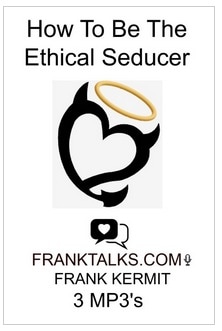
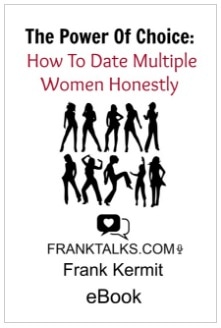
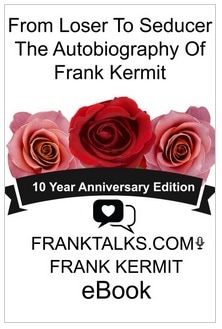
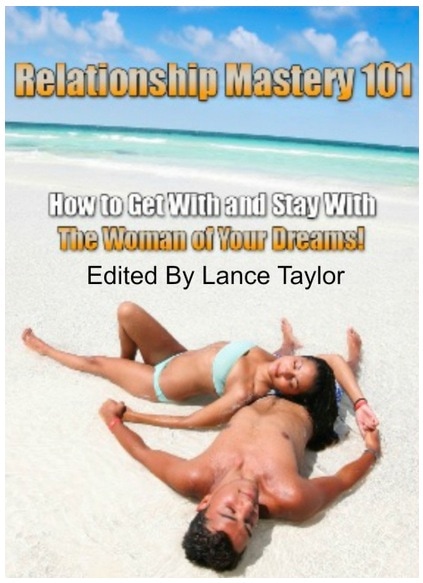
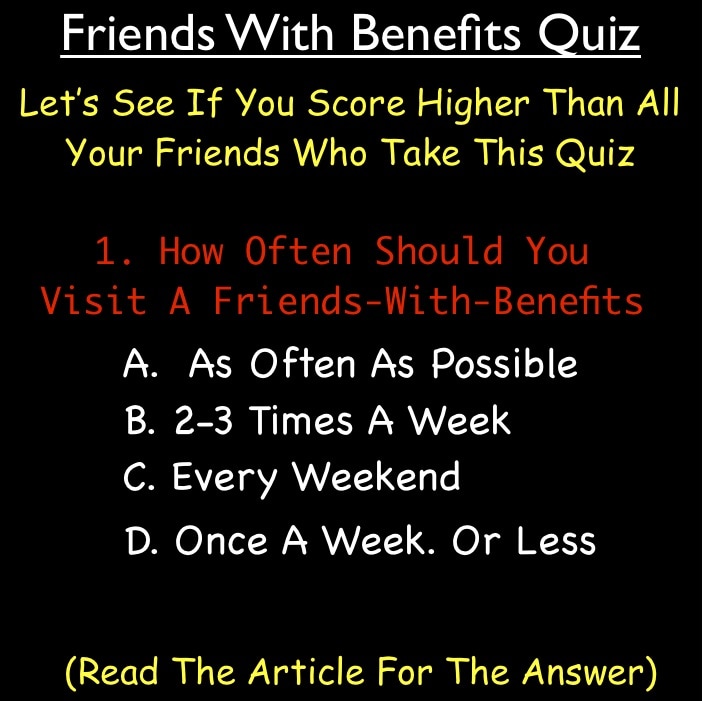

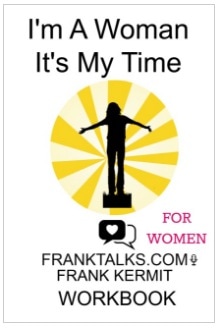


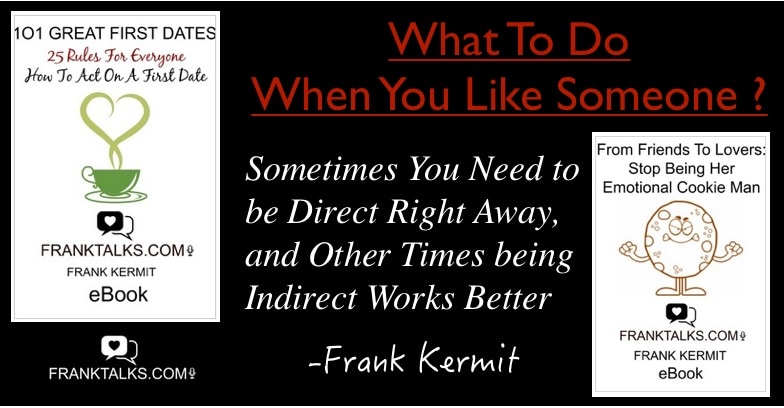
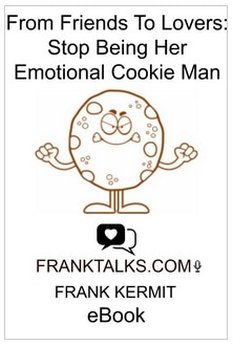
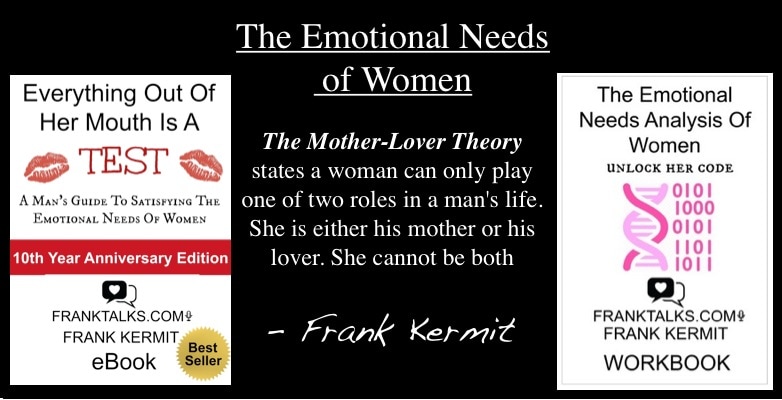
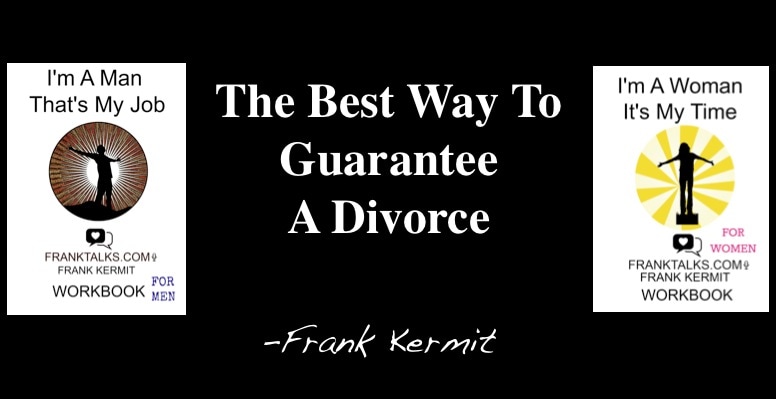
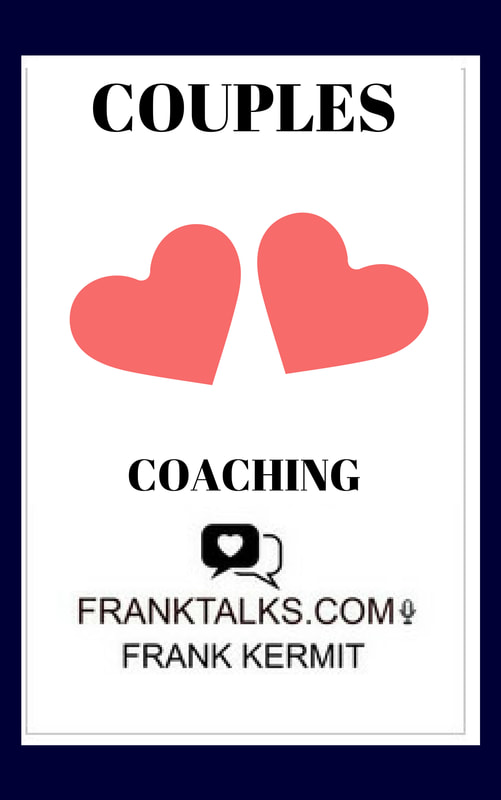


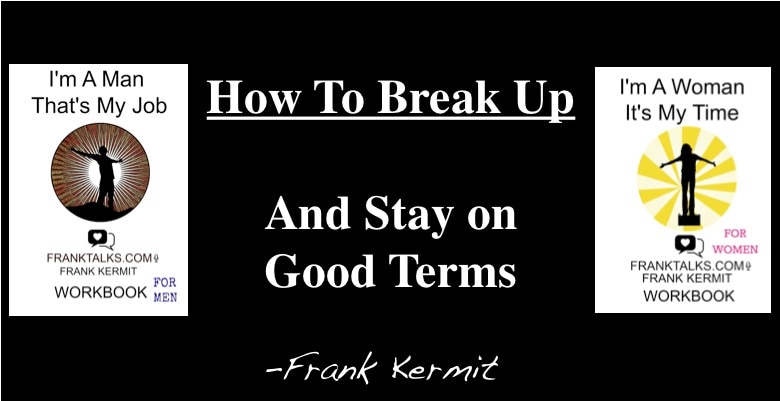
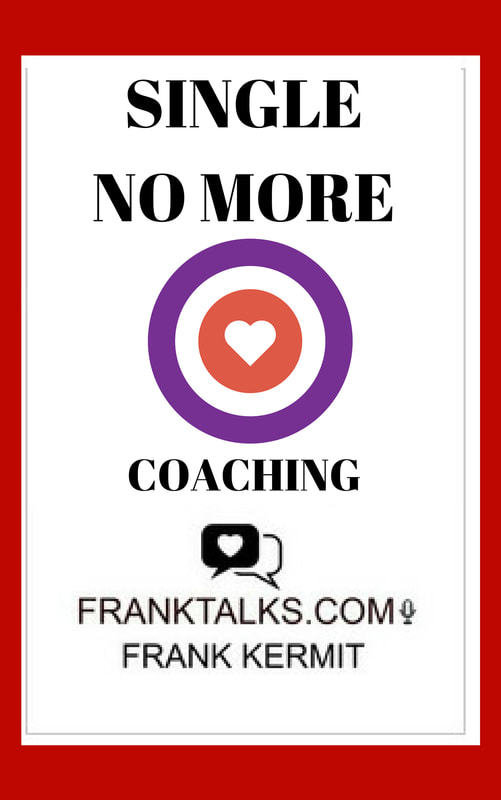
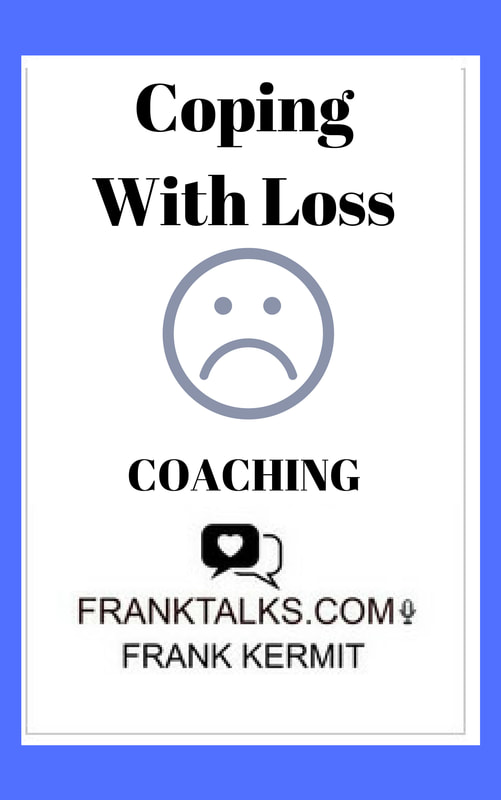
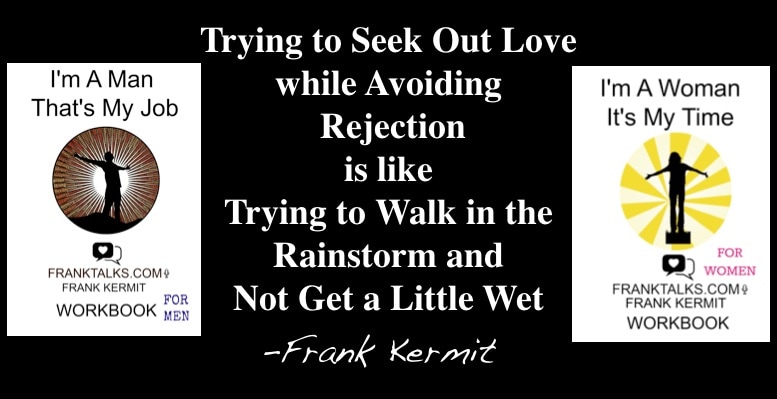
 RSS Feed
RSS Feed


